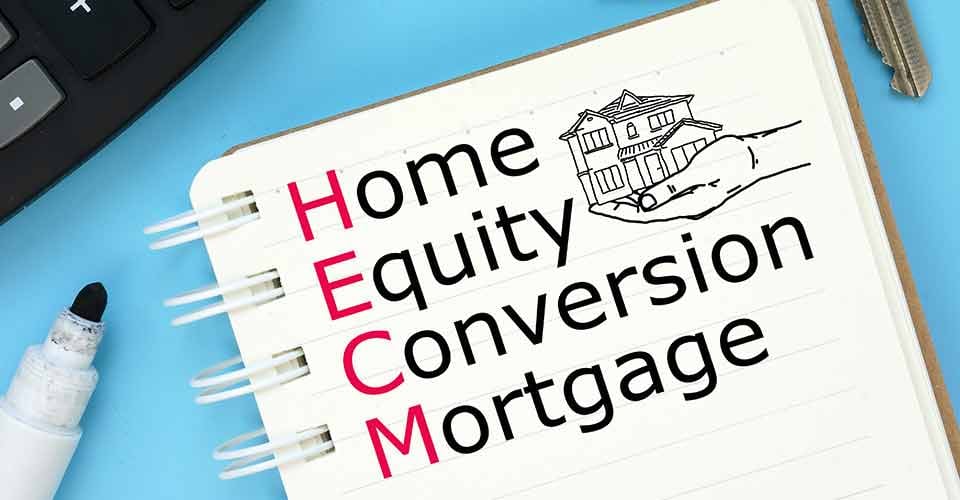Reviewing Different Types of Equity Release Mortgages On the Market
Reviewing Different Types of Equity Release Mortgages On the Market
Blog Article
Exploring the Various Types of Equity Release Mortgages Available Today
Equity Release mortgages present different options for property owners aged 55 and over. equity release mortgages. These monetary items cater to various needs and choices, enabling people to accessibility funds from their property. From lifetime home mortgages to common admiration mortgages, each kind supplies distinct benefits. Understanding these options is vital for making notified decisions. What factors should one think about when choosing the most appropriate equity Release plan? The details that adhere to might clarify this important topic
Understanding Equity Release Mortgages
Equity Release home mortgages provide homeowners, commonly those aged 55 and over, with a method to access the worth bound in their building without needing to sell it. This monetary option enables people to transform a section of their home equity right into cash, which can be utilized for various functions, such as home improvements, paying off financial obligations, or financing retirement.Equity Release can take various types, yet it essentially entails loaning versus the value of the home while keeping ownership. Homeowners can choose to obtain a swelling sum or a collection of smaller sized repayments, depending on their economic needs and preferences.Additionally, the amount readily available for Release is affected by the home's worth, the property owner's age, and specific loan provider requirements. Overall, understanding equity Release home loans is essential for homeowners to make informed choices about using their home's equity while thinking about the long-lasting implications.
Life time Mortgages
Life time home mortgages represent among the most prominent types of equity Release. This monetary item enables home owners, typically aged 55 or older, to obtain versus the value of their residential property while preserving possession. The financing, which is secured versus the home, builds up passion with time yet does not need month-to-month settlements. Rather, the financing and built up rate of interest are paid off when the house owner passes away or moves right into lasting care.Lifetime home loans provide flexibility, as borrowers can choose to obtain a lump sum or go with a drawdown center, accessing funds as required. Importantly, many strategies included a no-negative-equity guarantee, ensuring that debtors will certainly never ever owe more than the worth of their home. This feature supplies tranquility of mind, enabling individuals to appreciate their retirement without the fear of diminishing their estate. In general, life time home loans work as a sensible alternative for those looking for financial assistance in later life.
Home Reversion Program
:max_bytes(150000):strip_icc()/home-equity-loans-315556_final3-23fa1237c577475f811fe9fc06eedec2.png)
Drawdown Lifetime Mortgages
While numerous home owners seek ways to access their riches, drawdown life time mortgages present a flexible choice that enables people to Release funds gradually. This sort of equity Release home loan makes it possible for house owners to borrow against the worth of their property while preserving ownership. Unlike typical lifetime mortgages, drawdown plans allow borrowers to access a part of their equity upfront and withdraw extra funds as required, approximately a fixed limit.This attribute can be specifically advantageous for those who wish to manage their finances thoroughly, as it minimizes interest accumulation by only billing passion on the amounts drawn. Furthermore, drawdown lifetime mortgages usually feature a "no unfavorable equity assurance," making sure that debtors will never owe even more than their home's worth. This choice fits retired people who want economic protection and versatility, enabling them to meet unexpected expenditures or preserve their way of life without having to market their property.
Enhanced Life Time Mortgages
Improved Lifetime Home mortgages supply unique advantages for qualified house owners seeking to Release equity from their properties. Recognizing the eligibility criteria is crucial, as it identifies who can take advantage of these specialized finances. Nevertheless, it is additionally crucial to assess the possible downsides connected with improved alternatives, making sure a well-rounded viewpoint on their usage.
Eligibility Criteria Discussed
Comprehending the qualification standards for Boosted Life time Mortgages is crucial for possible candidates seeking to access the equity in their homes. Commonly, candidates must be aged 55 or older, as this age requirement is conventional in the equity Release market. Property owners should have a residential or commercial property valued at a minimum threshold, which can differ by lending institution. Notably, the home must be their main house and in excellent condition. Lenders commonly assess the home owner's health and wellness condition, as certain health conditions might boost qualification and advantages. In addition, candidates should not have existing significant financial debts secured against the building. Satisfying these requirements allows people to discover Enhanced Life time Mortgages as a viable choice for accessing funds tied up in their homes.
Benefits of Boosted Home Mortgages
After clearing up the qualification requirements, it becomes obvious that Improved Lifetime Home loans use several substantial benefits for property owners aiming to utilize their home equity. Primarily, they offer access to a bigger lending quantity contrasted to standard lifetime mortgages, benefiting those with wellness problems or age-related aspects that boost their life expectancy threat. This boosted borrowing capability allows homeowners to meet different financial demands, such as home improvements or retirement costs. Furthermore, these home mortgages generally come with flexible settlement choices, making it possible for consumers to manage their finances better. The no-negative-equity guarantee further ensures that property owners will never owe greater than their residential property's value, giving satisfaction. Overall, Boosted Lifetime Home loans provide a compelling alternative for eligible homeowners looking for economic remedies.
Possible Drawbacks Considered
While Boosted Lifetime Home loans provide many advantages, prospective disadvantages call for careful consideration. One considerable problem is the influence on inheritance; the equity launched decreases the worth of the estate entrusted to beneficiaries. In addition, these home loans can build up considerable rate of interest gradually, causing a substantial debt that may surpass the initial car loan quantity. There may additionally be restrictions on home modifications or rental, limiting house owners' adaptability. Improved items typically require certain wellness problems, indicating not all home owners will certainly qualify. Ultimately, handling the costs and fees associated with these mortgages can be complicated, possibly causing unexpected costs. As a result, individuals need to extensively examine their circumstance and speak with monetary consultants prior to proceeding.
Shared Appreciation Mortgages
Shared Gratitude Home mortgages represent a special financial plan that permits home owners to access equity while sharing future residential property value raises with the loan provider. This technique provides potential benefits such as decreased monthly payments, yet it additionally comes with drawbacks that have to be very carefully considered. Comprehending the qualification needs is essential for those curious about this alternative.
Concept Overview
Equity Release mortgages, particularly in the type of common recognition home loans, supply homeowners an unique monetary service that allows them to gain access to funds by leveraging the value of their building. In this setup, a lending institution provides a car loan to the home owner, which is usually settled via a share of the property's future recognition in value. This means that when the house owner offers the property or dies, the lender gets a portion of the boosted value, instead of simply the initial finance quantity. Shared gratitude mortgages can be appealing for those aiming to supplement their earnings or finance substantial costs while retaining ownership of their home. However, the economic ramifications of shared admiration should be thoroughly taken into consideration by possible borrowers.
Advantages and Disadvantages
Although shared admiration home mortgages can supply significant monetary benefits, they additionally include noteworthy downsides that potential customers need to think about. These home mortgages enable homeowners to access equity in their buildings while sharing a part of any future appreciation with the lender. This plan can be advantageous throughout times of increasing residential property values, providing considerable funds without month-to-month payments. Nonetheless, the main downside is the possible loss of equity; house owners may wind up with appreciably decreased inheritance for beneficiaries. Additionally, the intricacy of the terms can bring about misunderstandings regarding repayment obligations and the percent of admiration owed. It is crucial for borrowers to evaluate these variables thoroughly prior to dedicating to a common recognition home loan.

Qualification Needs
What requirements must homeowners satisfy to receive a shared gratitude home mortgage? Primarily, Visit Your URL prospects have to be at the very least 55 years old, assuring they are within the target demographic for equity Release items. In addition, the residential property must be their primary home and typically valued above a specified minimum limit, often around Web Site ? 100,000. Lenders also evaluate the home owner's economic circumstances, including earnings and impressive financial debts, to ascertain they can manage the home loan properly. Significantly, the building must be in good condition and totally free from considerable lawful encumbrances. House owners must additionally have a clear understanding of the terms, consisting of just how appreciation will be shown the loan provider upon sale or transfer of the residential property, as this impacts general returns.
Selecting the Right Equity Release Choice

Often Asked Inquiries
What Age Do I Required to Be for Equity Release?
The age requirement for equity Release usually starts at 55 for most strategies. Some suppliers may supply options for those aged 60 and above, mirroring differing terms based on private circumstances and loan provider policies.
Will Equity Release Affect My Inheritance?
Equity Release can impact inheritance, as the quantity borrowed plus interest minimizes the estate's value. Beneficiaries might get much less than anticipated, depending upon the building's admiration and the total debt at the time of passing.
Can I Move Residence With Equity Release?
The question of moving home with equity Release develops regularly. Generally, individuals can move their equity Release strategy to a brand-new home, yet specific terms and conditions may use, calling for consultation with the lender for assistance.
Exist Costs Connected With Equity Release Mortgages?
Fees related to equity Release home loans can consist of setup costs, valuation charges, and legal expenses. In addition, there might be early repayment costs, which can affect the general price and financial implications for the debtor.
Just How Does Equity Release Influence My Tax Obligation Circumstance?
Equity Release can impact one's tax circumstance by potentially increasing taxable income, as released funds are considered capital. Nevertheless, it usually does not sustain prompt tax obligation responsibilities, making it important to seek advice from a monetary consultant for individualized advice.
Verdict
In recap, the variety of equity Release home mortgages offered today offers home owners aged 55 and over several paths to access their property's image source worth - equity release mortgages. Whether going with a life time mortgage, home reversion plan, or other options, each option offers unique advantages customized to individual monetary demands. Mindful factor to consider and consultation with a financial advisor are important to ensure the selected equity Release option aligns with economic situations and personal objectives, ultimately facilitating notified decision-making for a secure monetary future. Equity Release mortgages present different alternatives for property owners aged 55 and over. Equity Release home loans provide property owners, commonly those aged 55 and over, with a means to access the value tied up in their residential or commercial property without requiring to market it. Boosted Lifetime Mortgages provide unique benefits for qualified home owners looking for to Release equity from their homes. Equity Release home loans, specifically in the kind of common admiration home mortgages, offer homeowners a distinct financial service that allows them to access funds by leveraging the value of their residential or commercial property. In summary, the variety of equity Release mortgages available today offers property owners aged 55 and over multiple pathways to access their residential or commercial property's value
Report this page